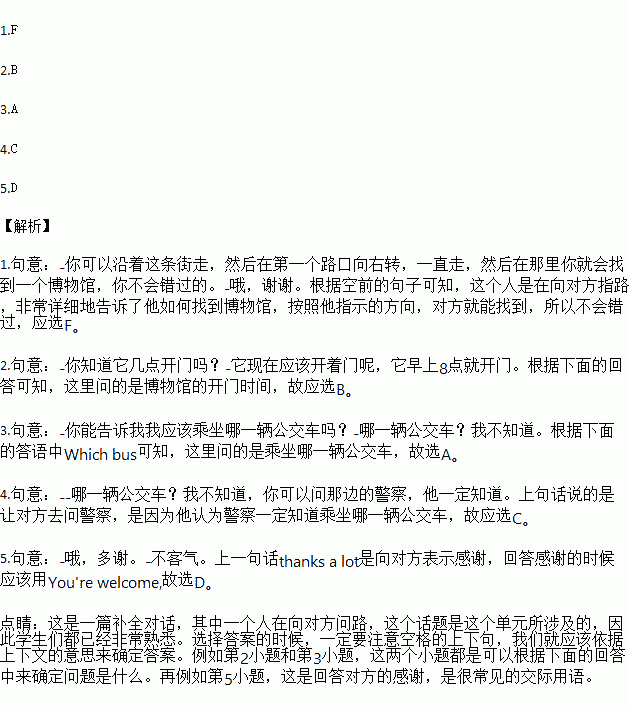ÌâÄ¿ÄÚÈÝ
¢ô£®²¹È«¶Ô»°(·½¿òÖÐÓÐÁ½ÏîÊǶàÓàµÄ)
A£ºExcuse me£®Could you tell me where the nearest museum is?
B£ºWell£¬it¡¯s a bit far£®You can go along the street£¬ then take the first turning on the
right£®Walk on and you¡¯ll find one there£®31£®1.
A£ºOh£¬thanks£®32£®2.
B£ºIt should be open now£®It opens at 8£º00 am£®
A£ºGood£®33£®3.
B£ºWhich bus?I don¡¯t know£®You may ask the policeman over there£®34£®4.
A£ºOK£®By the way£¬where¡¯s the nearest McDonald¡¯s£¬do you know?
B£ºRight behind you£¬sir£®See that sign?
A£ºOh£¬thanks a lot£®
B£º35£®5.
A£ºAnd can you tell me which bus I should take?
B£®Do you know what time it opens?
C£®He must know that£®
D£®You¡¯re welcome£®
E£®What¡¯s wrong with you?
F£®You can¡¯t miss it£®
G£®Let me help you£®
Á·Ï°²áϵÁдð°¸
 Сѧ¿Îʱ×÷ҵȫͨÁ·°¸ÏµÁдð°¸
Сѧ¿Îʱ×÷ҵȫͨÁ·°¸ÏµÁдð°¸ ½ð°æ¿ÎÌÿÎʱѵÁ·ÏµÁдð°¸
½ð°æ¿ÎÌÿÎʱѵÁ·ÏµÁдð°¸ µ¥ÔªÈ«ÄÜÁ·¿¼¾íϵÁдð°¸
µ¥ÔªÈ«ÄÜÁ·¿¼¾íϵÁдð°¸
Ïà¹ØÌâÄ¿

